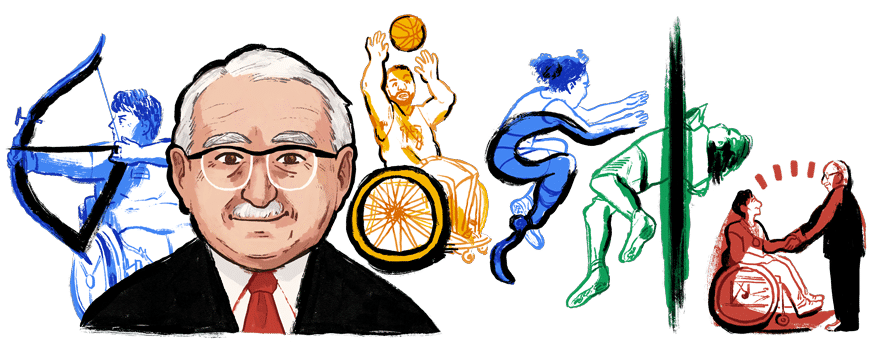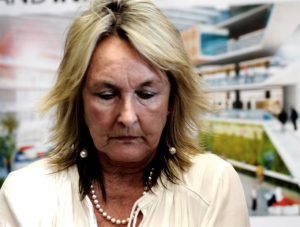The new Google Doodle is here and it is celebrating the 122nd birth anniversary of Jewish, Germany-born British neurologist Professor Sir Ludwig ‘Poppa’ Guttmann. He was the founder of the Paralympic movement. The illustration features Guttman, who is smiling while a few Paralympic athletes are being honoured at the back. The illustration is created by Baltimore-based guest artist Ashanti Fortson.
“I hope that my Doodle can help spark thoughts about how we can understand each other without dehumanization, what creating equitable access can mean, and how we can each go above and beyond to create equitable and accessible spaces for each other,” said artist Fortson.
Also Read: Google doodle on Margherita Hack. Know all about the Italian astrophysicist
Born in Tost, Germany (now Toszek, Poland) on July 3, 1899, Sir Guttman completed his MD in 1924. Soon after, he began extensive research on spinal cord injuries. He also performed several neurosurgical procedures and surgeries in this period. This was the boom period of his career as he raised prominence as one of Germany’s top neurosurgeons by his early 30s.
However, with the rise of the Nazi party and the passing of the Nuremberg Laws in 1933, Guttmann was prevented from practicing medicine professionally.
In 1939, Guttmann was forced to leave his home country Germany after the Kristallnacht movement began in Germany that led to mass persecution of Jews in the country. He along with his family fled to England.
Settling in England gave Guttmann an opportunity to advance his research in paraplegia. Paraplegia is a spinal cord injury that paralyses the lower limb.
In 1944, he put his innovative approach into practice as the director of the National Spinal Injuries Center at Stoke Mandeville Hospital.
Also Read: Female bodybuilder with one leg captures hearts in China
His journey fr the upliftment of paralympic individuals began in 1948 as he organized a 16-person archery contest, one of the first official competitive sporting events for wheelchair users.
Later called the ‘Stoke Mandeville Games’ or the ‘Olympics for the Disabled,’ the competition demonstrated the power of elite sport to break down barriers for disability and garnered the attention of global medical and sporting communities.
With that, Guttmann facilitated the International Stoke Mandeville Games, following the 1960 Summer Olympics, the first of many Paralympic Games.
Today, thanks to the tremendous efforts of Sir Ludwig Guttman, Paralympic athletes are rightfully acknowledged for their achievements and have been given the opportunities that they deserve.







